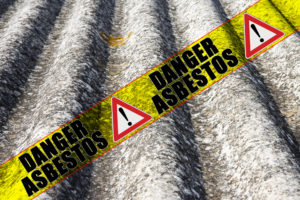A federal appeals court has upended case law for reinsurers in New York, declaring that policy limits don’t extend to litigation costs for a property and casualty insurance carrier.
In Global Reinsurance Corp. of America vs. Century Indemnity, the U.S. 2nd Circuit Court of Appeals last week said that previous decisions, issued in the 1990s, have been undermined by a recent opinion by the New York State Court of Appeals.
Based on that, and relying on contract law, the federal court panel found that Global must cover Century’s defense expenses in underlying asbestos claims that were filed against Caterpillar Tractor Co. The 2nd Circuit upheld a federal district court’s decision, denying Global’s request for a declaratory judgment on the policy caps.
The key concept, the court said, was the concurrency of the reinsurance policies to the liability policies.
“Applying ordinary rules of contract interpretation, we agree with the district court: The reinsurance certificates’ follow-form clauses require Global to pay its proportionate share of Century’s defense costs in excess of the certificates’ liability limits,” the appeals court wrote in its Dec. 28 opinion. “We base this conclusion on the certificates’ unambiguous language as well as the testimony of Century’s experts confirming that a strong presumption of concurrency prevailed in the reinsurance market at the time the certificates were issued.”
 From 1962 to 1981, Century Indemnity and its predecessor companies sold liability insurance to Caterpillar. The policy terms noted that Century would participate in Caterpillar’s defense against claims and that those litigation costs would be paid in addition to the liability limits defined in the policies.
From 1962 to 1981, Century Indemnity and its predecessor companies sold liability insurance to Caterpillar. The policy terms noted that Century would participate in Caterpillar’s defense against claims and that those litigation costs would be paid in addition to the liability limits defined in the policies.
In the late 1980s, asbestos suits against Caterpillar began to pile up, forcing Century to indemnify the manufacture for extensive damages and defense costs. Meanwhile, Century had bought reinsurance through Global and Global had issued 10 certificates of reinsurance in the 1970s. Century began billing Global for a share of the indemnity losses and defense costs, but Global refused to pay above the policies’ stated limits, the court explained.
Global sued Century in 2014, seeking a judgment on the policy limits. The U.S. District Court for the Southern District of New York sided with Global, agreeing that the policy limits barred further litigation expense reimbursement. Century appealed to the 2nd Circuit, arguing that the certificates were written to be concurrent with, or the same as, the underlying policies in the treatment of defense costs, and that as a result, those costs were payable in addition to the certificates’ policy limit.
Century argued that the concurrency doctrine was fundamental to the reinsurance market itself, and that the federal appeals court had erred in the 1990s decisions, known as the Bellefonte and Unigard opinions.
“We thought this argument merited further consideration and therefore asked the New York Court of Appeals by means of a certified question whether New York law imposed a rule of construction or a strong presumption that a reinsurance certificate’s liability limit caps the reinsurer’s liability with respect to both indemnity losses and defense costs regardless of whether the underlying policy being reinsured is understood to cover defense costs in excess of the policy’s liability limit,” Circuit Judge Steven Menashi wrote.
The New York court answered, “no” – state law imposes no such construction or presumption. The 2nd Circuit panel said that meant that the Bellefonte and Unigard decisions were no longer the law of the circuit, Menashi explained.
The 2nd Circuit remanded the case to the federal district court. That court reversed its previous decision. Global then appealed, again, to the circuit court.
“Because the certificates do not specifically provide that the terms of Global’s reinsurance differ from those of the Century policies with respect to the treatment of defense costs, the follow-form clause requires that Global’s payments toward Century’s defense costs be made in addition to the certificates’ limits,” Menashi wrote for the 2nd Circuit. “This conclusion follows not only from the unambiguous language of the certificates but also from evidence of custom and usage concerning the central importance of concurrency to the reinsurance market when the certificates were issued.”
Also last week, the 2nd Circuit made another ruling in favor of an insurance carrier in a COVID-19 business-interruption suit. In 10012 Holdings Inc. vs. Sentinel Insurance, the court found that the policy did not cover losses that resulted when the New York City art gallery was forced to close during the pandemic.
Under New York law, the policy provided coverage only if the insured had suspended operation because of physical damage to the property or to nearby property, the 2nd Circuit concluded.
The ruling is consistent with most other federal court decisions on COVID-19 business interruption claims. A litigation tracker provided by the University of Pennsylvania Carey Law School shows that of 540 motions in federal court to dismiss those types of suits, almost 94% have gone in favor of the insurer.
Topics Lawsuits
Was this article valuable?
Here are more articles you may enjoy.



 QBE to Non-Renew $500M of North American Mid-Market Biz
QBE to Non-Renew $500M of North American Mid-Market Biz  As Rates Rise, Majority of Homeowners Say Insurance Industry Is in Crisis: Survey
As Rates Rise, Majority of Homeowners Say Insurance Industry Is in Crisis: Survey  Big ‘I’ Report: Independent Agency Channel Placed 62% of Premiums in 2023
Big ‘I’ Report: Independent Agency Channel Placed 62% of Premiums in 2023  German Insurtech Wefox to Replace CEO After Board Rejects Mubadala Sales Plan
German Insurtech Wefox to Replace CEO After Board Rejects Mubadala Sales Plan 

